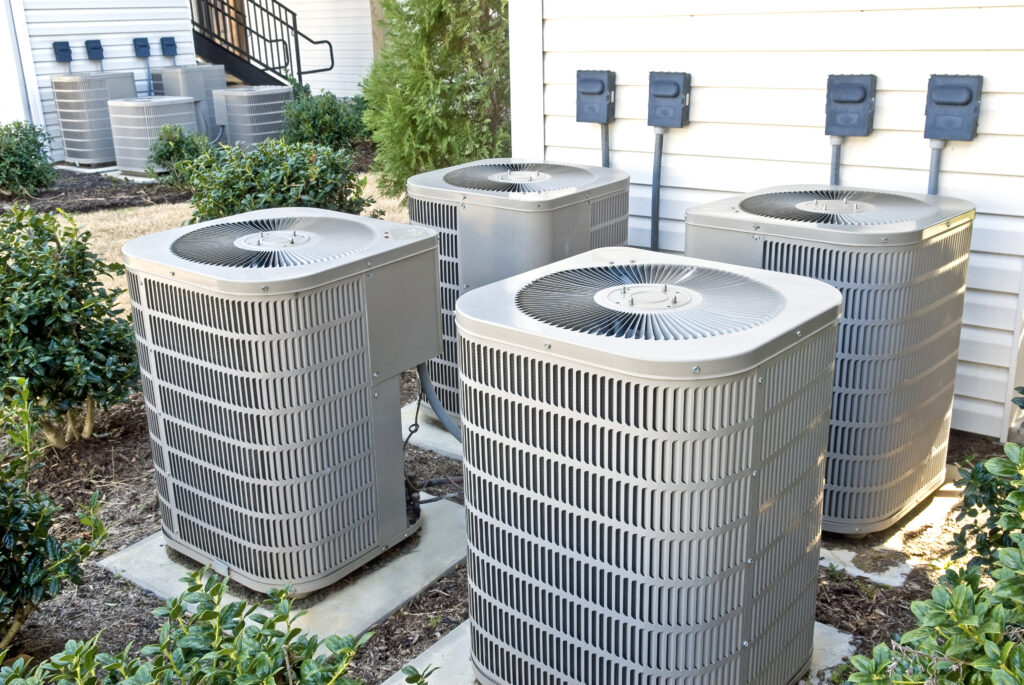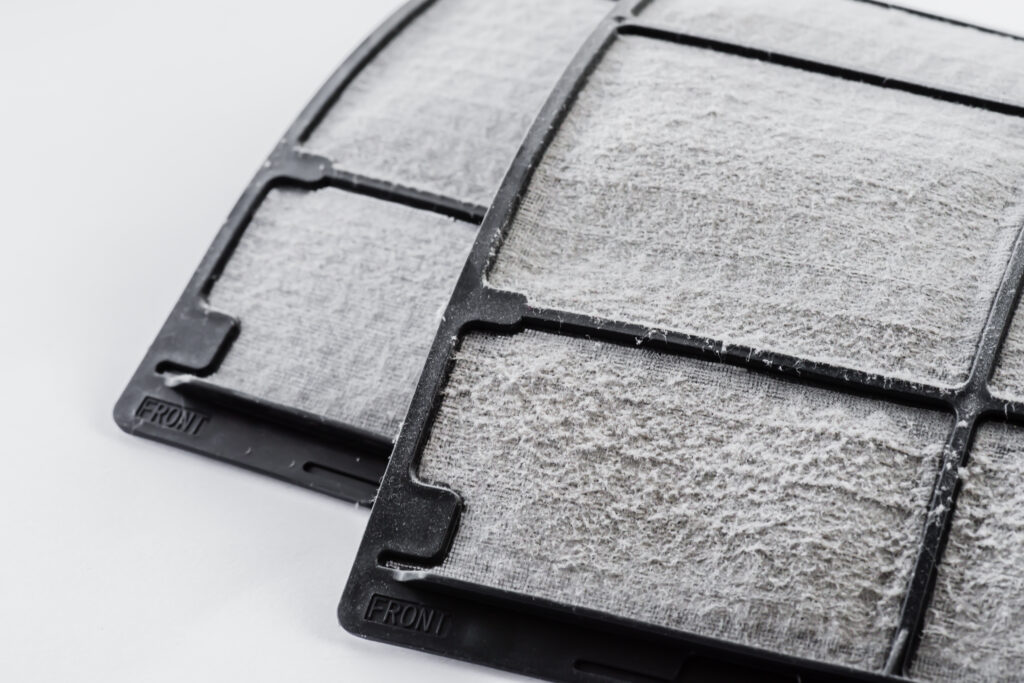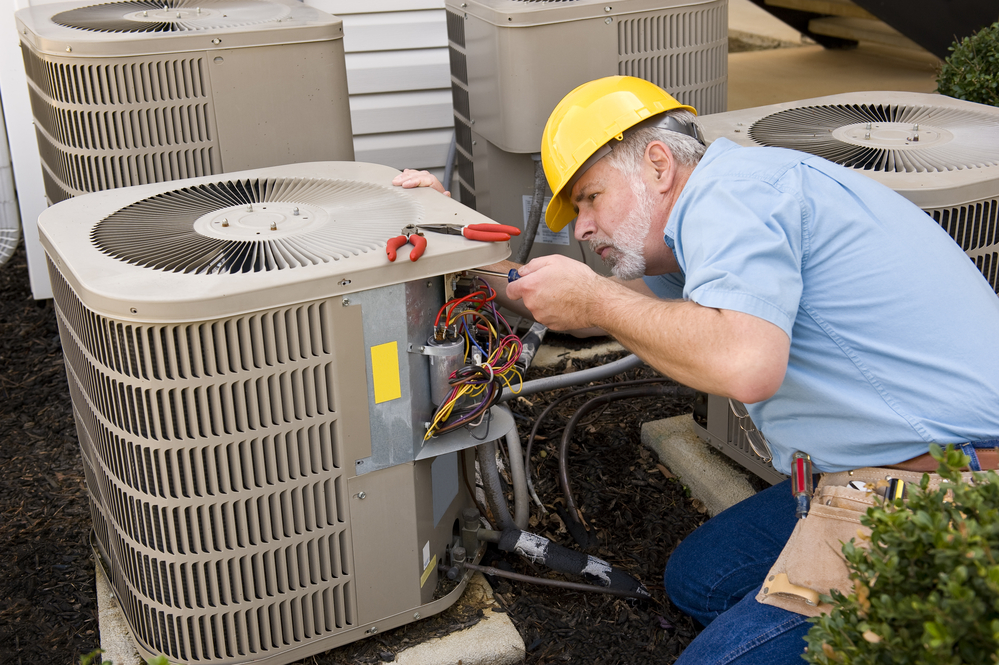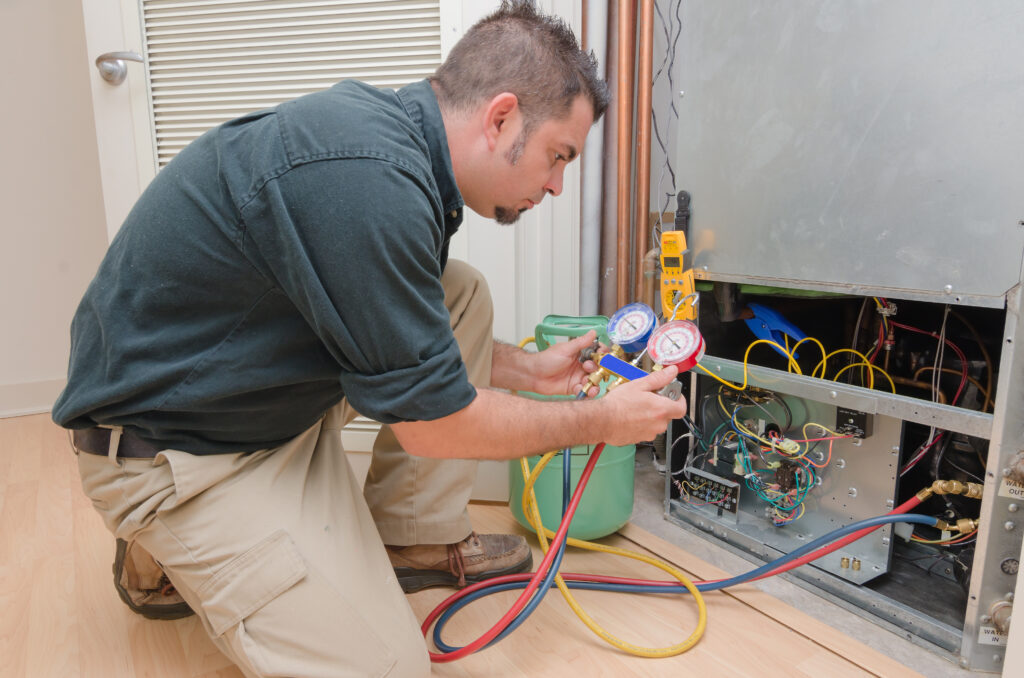Introduction
Do you think that your AC compressor has stopped working? Are you even sure what an AC compressor is? If you are not, that is okay. In this blog post, we will be discussing what an AC compressor is, common problems with them, how to fix it, and what to do when you can not fix it. We hope this blog post answers any questions you may have. If not, feel free to leave a comment below. We will do our best to help you out and point you in the right direction.
What is an AC Compressor?
An AC compressor is a vital piece of equipment in your air conditioner that compresses refrigerant and circulates it through your system. It compresses refrigerant by decreasing the volume of what it is in in order to increase its pressure. By increasing the pressure of the refrigerant, it compresses it.
Refrigerant is a set of chemicals that are vital to the cooling process. If the AC compressor is the heart of your air conditioner (AC), then the refrigerant is the blood. During the cooling cycle, refrigerant transitions from a gas to a liquid and back several times. There are several different types of refrigerants depending on the types of air conditioners. The most common different types of refrigerants are Chlorofluorocarbons, known as CFCs which are now strictly regulated due to their negative impact on the environment, Hydrochlorofluorocarbons that replace CFS, and Hydrofluorocarbons that do not contain chlorine, unlike the others. Some refrigerants produce greenhouse gases which can be harmful to the environment, however, more air conditioner manufacturers are opting for safer options that are not only better for the environment, but provide better air quality too.
While the refrigerant is an incredibly important part of an HVAC system, without the AC compressor it simply would not work. The AC compressor is one of the reasons why the refrigerant can change states as it compresses it. Just like refrigerants, there are several different types of AC compressors: reciprocating, scroll, screw, rotary, and centrifugal. According to Carrier Enterprise, the most common type of AC compressor is the reciprocating AC compressor. To put it simply, reciprocating AC compressors use pistons and cylinders to transport refrigerant. An AC compressor can be a complex part of your air conditioner, but that is because it is such an important part of your HVAC system. Without it, your air conditioner would not be able to work.

Common Problems with AC Compressors
AC compressors rarely break when properly maintained, but it still happens. When that happens, there are a few things that may be causing it trouble:
- Too Much or Too Little Refrigerant
When there is too much or too little refrigerant in your air conditioner, your AC compressor is bound to run into issues. As mentioned in the above section, refrigerant is crucial to the cooling process. When there is too much refrigerant in an AC compressor, you will likely notice an increase in your utility bills, strange sounds coming from your air conditioner, and your air conditioner randomly shutting off. The reason why your air conditioner randomly shuts off is due to the excess refrigerant flooding the system. When excess refrigerant floods the system, your AC compressor runs into the issue of overheating, and in an effort to save itself, it shuts off. Excess refrigerant can only exist in the case where someone floods the system with refrigerant due to lack of experience with HVAC systems, or an HVAC technician is negligent.
On the other hand, an AC compressor with too little refrigerant is a more complex issue. Usually, when there is not enough refrigerant in an AC compressor, it is because the air conditioner is leaking. The best thing you can do when an air conditioner is leaking is to turn it off if possible and call an HVAC technician. If you can, try to locate the leak and see if there is anything you can do about it. The information will be invaluable to the HVAC technician and may save you some money in the long run as you will stop losing refrigerant because of it.
- Issues with the Coils
When there is a buildup of debris in the coils, an AC compressor runs the risk of overheating. The air conditioner compressor has to work harder to expel the same amount of air due to the blockage in the coils and will constantly run longer. Some ways to fix issues with coils are to clean the debris around the outside unit of your AC and clean the coils themselves. Once you have cleaned the coils, turn on your AC and see if it has helped. If it has, the problem was a buildup of debris in the coils. If it has not, then you can rule out dirty coils causing issues with your compressor. This can help you narrow down the issue and get you one step closer to getting your compressor back in working order.
- Electrical Issues
Electrical issues can cause problems with AC compressors. When there are electrical issues with AC compressors, usually it can be traced back to damaged electrical wires. Electrical wires in your air conditioner system are damaged when a buildup of acids takes place. An easy way to tell if an AC compressor is damaged due to electrical problems is if it randomly shuts off or not. The easiest way to prevent damage due to electrical problems and the majority of the problems with AC compressors is yearly maintenance.
- Clogged Filters
A clogged air conditioner filter can cause several problems including an AC compressor not working properly. When an air conditioner filter is clogged, airflow is restricted from the air conditioner. The efficiency of an air conditioner as a whole goes down and drives up utility bills when airflow is restricted from an air conditioner. A filter can easily be changed by a homeowner. Depending on the size of the filter and other external factors such as if you own pets or live in a dusty environment, you may have to change your filter more frequently. When in doubt, change your air conditioner’s filter to see if it helps your AC compressor problems.

How to Fix an AC Compressor
There are several ways to fix an AC compressor. Some of these ways are simpler than others, but even the smallest amount of maintenance can help fix an issue. Before getting to work, you should always turn off your AC. Once you have turned it off, you can start troubleshooting. Below are a few easy ways to try and fix your AC compressor:
- Flip the Breaker
Your AC compressor may have turned off due to your breaker. If you have noticed that your AC has turned off or that any lights in your house are not functioning, flip your breaker. Family Handyman offers a useful guide on how to flip a breaker. Before flipping your breaker, turn off the lights and unplug any electrical devices for safety reasons. If you find that flipping your breaker fixes your air conditioner, it may be worth considering if you have electrical issues or not. If you think you do, schedule an appointment with an electrician.
- Change the AC Filter
A quick way to troubleshoot your AC compressor is to change the filter as mentioned in the above “Clogged Filters” section. Changing your AC filter is a fairly simple process. If you have not changed your filter in three months or more it is worth doing so before contacting an HVAC technician.
- Clean Condenser Coils
The condenser coils in your HVAC system are located behind your AC fins. Your AC fins are pieces of metal that help push heat from the air conditioner. There are several ways to clean condenser coils. One way to clean condenser coils is to use a dedicated condenser brush. With the dedicated brush, gently clean between the fins and remove debris from the coils. Another way to clean condenser coils is to use a condenser coil cleaner. Condenser coil cleaner will usually be a spray that produces foam and can be gently washed away with a hose. Most condenser coil cleaners are available at large retail stores. A third way to clean the condenser coils is to use detergent and warm water. When using detergent and warm water to clean your condenser coils, make sure that the detergent is first safe to use on them. Some detergents may not be suitable for the job. You can clean your condenser coils in a variety of ways, but always be careful and follow the directions listed on the equipment you are using.
- Call a Reliable HVAC Company
When all else fails, the best way to fix an AC compressor is to call an HVAC company. Choosing a reliable HVAC company to take a look into your HVAC problems can help significantly. In previous blog posts, we have mentioned how important it is to do your research when choosing an HVAC company. Look at reviews to get an idea of the HVAC company’s response time, accessibility, and quality of work. If the majority of the reviews hint that the HVAC company fails in these categories or others, go with a different HVAC company. Going with a reliable HVAC company can help fix your AC compressor and prevent problems down the road.

What to Do When You Can’t Fix an AC Compressor
Sometimes it is simply not possible to fix an AC compressor. AC compressors can reach the end of their lifespan or become damaged beyond repair. Usually, it’s more cost-effective to replace an entire air conditioner than just an AC compressor due to their high price tag. According to Home Advisor, the average AC compressor costs $1,800 to replace. Not only is it expensive to replace an AC compressor, but usually it is not the only thing damaged in the air conditioner. When an AC compressor breaks, other parts tend to break along with it. This can be due to the AC compressor not working properly or simply the age of the air conditioner itself. Sometimes the best thing you can do is replace your air conditioner and start fresh.

Conclusion
While an AC compressor can be difficult to understand, it is a vital part of your HVAC system. Without it, your HVAC system would not be able to function. In this blog post, we covered what an AC compressor is and why it exists in your HVAC system, common problems with AC compressors and why they happen, different ways to fix an AC compressor, and what to do going forward if you can not fix your AC compressor. Still, confused and want to ask us a question? Leave a comment below. We hope this blog post helped you out. Do you live in Jefferson County or the surrounding areas and need your AC compressor looked at? Give us a call at 636-475-9384. We would be happy to take a look at it, and we offer free estimates.